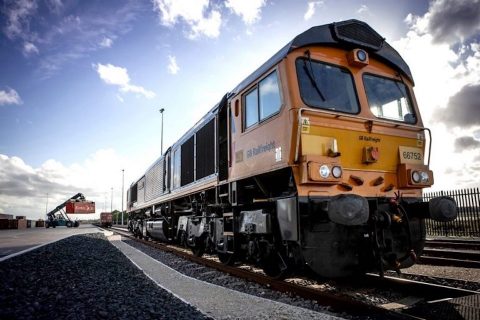New Brexit busting Liverpool – Mossend intermodal services

Partners in sea, ports and rail operations have launched a new service between Liverpool and Scotland, to help break Brexit congestion in the south of the UK. A collaboration between Peter D Stirling at the Mossend terminal near Glasgow, Peel Ports at Liverpool, and three maritime container operators, has put the new intermodal rail freight service on the tracks. The service will run up to four days a week between Central Scotland and the major port in the North West of England.
Do you want to read the full article?
Thank you for visiting RailFreight.com. Become a member of RailFreight Premium and get full access to all our premium content.
Are you already a member?
Having problems logging in? Call +31(0)10 280 1000 or send an email to customerdesk@promedia.nl.




